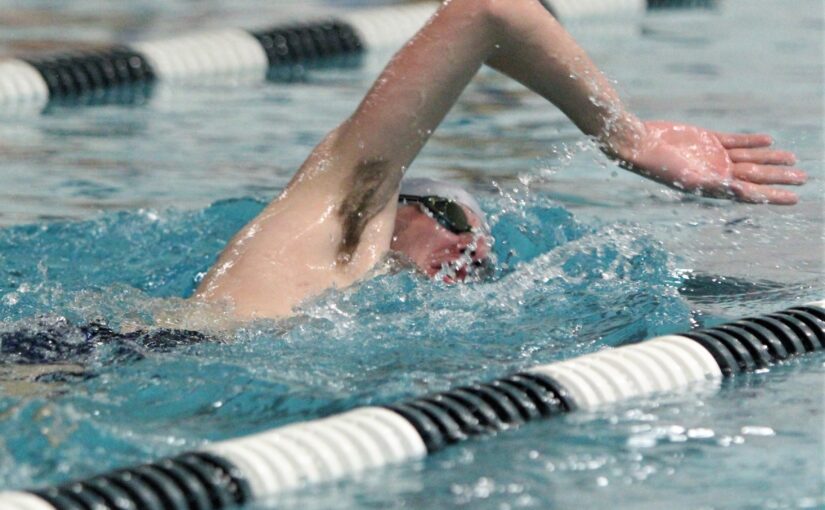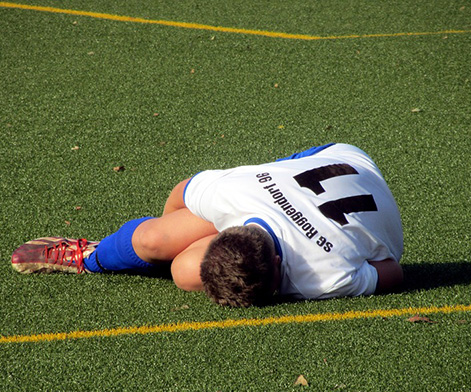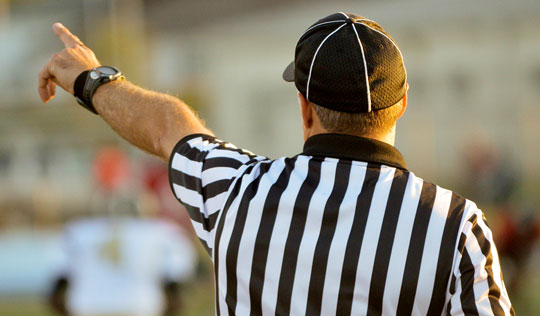Is health coaching the missing link for college athletes?
Many of us, as college athletes, have sat through health talks from our coaches or dieticians, getting lectured about nutrition and what we should be eating. We have been told not to skip meals when running between classes and practice, to get 7-8 hours of sleep at night, and to hydrate before, during, and after workouts.
We would listen to what they had to say, then walk out, and nothing would change in our daily routine.
 That’s because making big changes — especially to our health and lifestyle — can be hard, even when we know it could take our performance to the next level. We’re willing to try to train, but we often neglect the work outside the field and gym required to fully optimize our performance. We’re fit — but too frequently, we’re not really healthy.
That’s because making big changes — especially to our health and lifestyle — can be hard, even when we know it could take our performance to the next level. We’re willing to try to train, but we often neglect the work outside the field and gym required to fully optimize our performance. We’re fit — but too frequently, we’re not really healthy.
After all, it’s much easier to do the little things. Swimmers, for example, will shave the hair off their entire bodies just to drop a hundredth of a second off their times. But then they end up grabbing fast food on the road or pulling an all-nighter just before competitions. They take simple actions that save milliseconds but are giving away much more. And virtually every other sport has its own twist on the same story.
Unfortunately, really getting healthy requires more than just being told by a coach, trainer, or nutritionist what to do. It’s about doing the hard work of bridging intention to action. It’s about eating right, paying attention to sleep, managing stress and anxiety, and much more. But that’s hard to do on your own — especially for college students, who are often learning to take care of themselves for the first time.
Yet getting healthy doesn’t have to be a solo sport. It takes support, and it helps to have someone there to keep you on the right path and hold you accountable. And because each individual athlete is so different — from physical makeup and motivations to lifestyle and diet — there isn’t a one-size-fits-all answer. Each person needs a customized program that’s tailored to help them succeed in their own unique circumstances.
Even the most engaged college coaches simply don’t have the bandwidth to provide this kind of support. They might see where their athletes are having issues off the field, but they don’t have the time on top of all their other responsibilities — and aren’t necessarily trained — to do the individualized, hands-on work that is needed to help their players change their health behaviors. And the nutrition and training centers that have begun to work with universities in recent years typically are less personalized and often only focus on an athlete’s diet and conditioning, rather than looking holistically at all aspects of their health.
That’s where health coaching — a new profession, not yet widely known in the athletic arena — comes in. Health coaches can provide athletes with the tools they need to improve their health and well-being. They work with individuals one-on-one to figure out how to consistently apply and incorporate key health fundamentals into their lives. They help people develop realistic plans for reaching their health goals and then provide ongoing support, motivation, and accountability through regular check-ins that are needed to stay on track along the way. In many respects, health coaches serve as a kind of advisor, support network, and accountability partner all rolled into one.
A recent health coaching pilot we conducted with the University of the Pacific swim team produced a promising initial set of results. Of the swimmers who participated, all reported an increase in their energy levels at workouts and in general due to improvements in sleep and having a greater understanding of their diet and how to plan meals. Every participant who completed the pilot produced at least one personal best time after their health coaching period.
As Pacific swimmer Paige Sondgeroth explained, “I’m so much more conscious now about all the different ways I fuel and prepare myself for training. I use what I learned every day, and I can say my overall health and eating habits have improved 100%!” Beyond their in-the-pool performance, the athletes are also gaining critical knowledge and learning new behaviors that will help them lead healthier lives even after their college sports careers are over.
» ALSO SEE: Conversation with Morehouse College head coach Terance Mathis
It’s important to understand that health coaches aren’t nutritionists, dieticians, or physicians; they work alongside those professionals to help athletes make changes for themselves, build long-term healthy habits, and self-manage their physical, mental, and emotional well-being.
And that’s critical because knowing what you need to do to get healthier is only half the battle. Health coaches can support athletes to help them actually do it. As New York Times health columnist Jane Brody has explained, health coaching is the thing almost everybody needs, but most just don’t know they need it yet.
Katie Long is a National Board Certified Health Coach based in Oakland, California, USA. As a former Division I swimmer, her health coaching practice is rooted in providing college sports teams and student-athletes with the personalized advice, support, and accountability they need to be healthy, not just fit. She can be reached at [email protected]. Katelyne Herrington, a two-time Division I All-American swimmer, is entering her 6th year as the head coach of the men’s and women’s swimming teams at the University of the Pacific.





